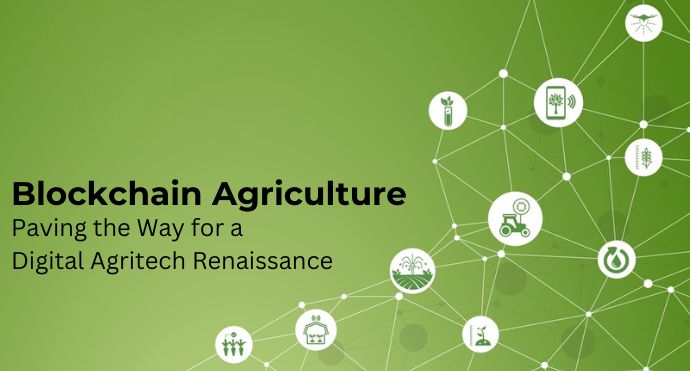The global blockchain agriculture market is poised for significant growth, with projections indicating it will reach a value of $10.3 billion by 2027. This surge in market size is attributed to the escalating demand for traceability and transparency throughout the food supply chain. Blockchain technology offers a promising solution to meet these demands, enabling improved efficiency and cost reduction in the agricultural industry.
The benefits of blockchain in agriculture are already being recognized and adopted by major companies in the field. Industry giants like Walmart, Dole, and Tyson Foods are actively leveraging blockchain to enhance supply chain transparency, traceability, and quality assurance. By utilizing blockchain, these companies can track and verify the movement of agricultural products from farm to fork, reducing fraud and ensuring greater consumer trust.
Here are some specific examples of how blockchain is being used in agriculture today:
- IBM Food Trust is a blockchain-based food traceability platform that is used by a number of major food companies, including Walmart, Dole, and Tyson Foods. The platform allows food companies to track the movement of food products throughout the supply chain, from the farm where they were grown to the grocery store where they are sold. This information can be used to identify potential risks to food safety, such as contamination or fraud.
- Provenance is a blockchain-based platform that is used to track the environmental impact of food production. The platform allows farmers to track the amount of water, land, and energy used to produce food. This information can be used to identify ways to reduce the environmental impact of agriculture.
- Farmers Edge is a blockchain-based platform that is used to help farmers manage their operations. The platform provides farmers with access to real-time data on weather, soil conditions, and crop yields. This information can be used to help farmers make better decisions about how to manage their crops.
Transformative Impact of Blockchain in Agriculture: Data Points
Supply Chain Transparency: According to a study by BIS Research, the global market for blockchain in agriculture and food supply chain management is projected to reach $1.4 billion by 2028, growing at a compound annual growth rate (CAGR) of 45.8% during the forecast period.
Improved Efficiency: Research conducted by the World Economic Forum estimates that blockchain technology can reduce agricultural food fraud costs by $31 billion by 2024, improving supply chain efficiency and reducing losses.
Traceability and Quality Assurance: The Food and Agriculture Organization (FAO) of the United Nations reports that blockchain solutions can enhance traceability, reducing food waste and increasing consumer trust. For example, Walmart implemented blockchain technology to track the movement of pork in China, reducing the time taken for traceability from days to seconds.
Empowering Smallholder Farmers: The International Finance Corporation (IFC) estimates that blockchain technology can provide financial inclusion to over 400 million smallholder farmers globally, enabling access to credit, markets, and fair prices for their produce.
Sustainable Agriculture: The World Wildlife Fund (WWF) is piloting blockchain technology to track and certify sustainable seafood products, ensuring that consumers have access to information about the sustainability of their seafood choices.
Crop Insurance: In India, the state of Maharashtra has launched a blockchain-based platform called eNAM (Electronic National Agricultural Market), which allows farmers to sell their produce online and access crop insurance services, reducing fraud and ensuring timely payouts.
Data-Driven Decision Making: Blockchain-enabled platforms, such as AgriDigital in Australia, are empowering farmers to capture and utilize data for decision making. For instance, farmers can track yields, monitor soil health, and optimize resource allocation based on real-time data collected through blockchain-powered systems.
These data points demonstrate the significant potential of blockchain technology to revolutionize agriculture by improving transparency, efficiency, sustainability, and financial inclusion for farmers. As more initiatives and investments are made in this space, the transformative impact of blockchain on the agriculture industry is expected to accelerate.
In conclusion, the growing market for blockchain in agriculture is being driven by the increasing demand for traceability and transparency in the food supply chain. With its ability to improve efficiency, reduce costs, and empower farmers and consumers, blockchain technology is poised to reshape the agricultural industry. As major companies continue to adopt blockchain solutions and explore its transformative potential, the future of blockchain in agriculture looks promising and exciting.



